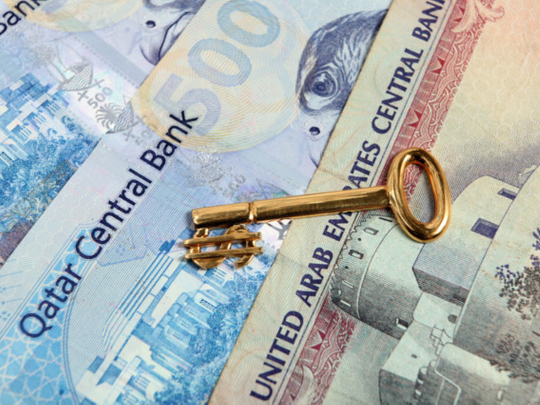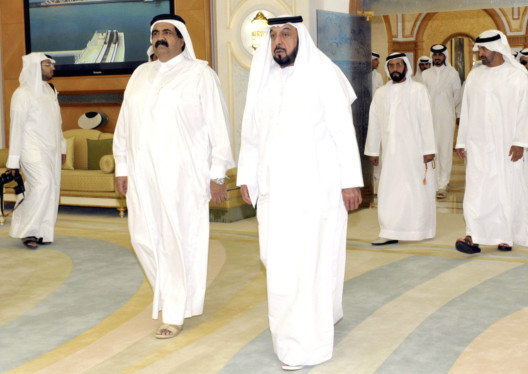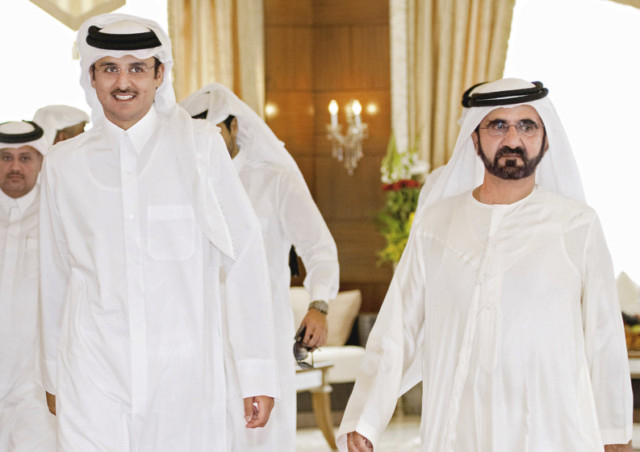
Business between the UAE and Qatar is on the rise. As Qatar opts to diversify away from its reliance for GDP on oil and gas and begins to implement wide-ranging infrastructure in time for the 2022 Fifa World Cup, the desert nation is simultaneously offering lucrative opportunities to the multifarious private sector businesses trading from the Emirates, which, being closely located and well connected by land, air and sea, renders the UAE an ideal trading partner.
This was the message espoused by Hamad Buamim, Director-General, Dubai Chamber of Commerce and Industry, at Dubai Chamber’s Country Focus Briefing: Qatar 2012. The forum was organised in cooperation with the body’s Qatari counterpart and held at the Dubai Chamber’s headquarters earlier this month.
By increasing the levels of bilateral trade between the two bellwether states of the GCC, Qatar stands to gain from the UAE’s experience when it comes to developing large-scale projects in the tourism, travel and real estate industries that accelerate economic growth, says Buamim.
“Dubai is well placed to help Qatar meet its import obligations with regards to machinery and construction materials that are set to increase in line with population growth and large-scale planned infrastructure projects,” says Buamim, according to Emirates news agency WAM.
Ali Bu Sherbak Al Mansouri, Head of Communications, Qatar Chamber of Commerce and Industry, said the Country Focus on Qatar sheds requisite light on the business opportunities in his country and highlights the various competitive advantages and economic strategies that have laid solid grounds for future economic synergy that will further enhance bilateral ties between the two nations.
Trade increase
Regarding Qatar’s admirable non-oil-generated revenue plans, the UAE can lend a proficient hand with this also.
“Trade between the UAE and Qatar reached Dh7.8 billion in 2011, with exports and re-exports of construction materials to Qatar accounting for Dh384 million,” says Saed Al Awadi, CEO of Dubai Exports, in a statement.
“Iron, steel, and plastic were the major products exported to Qatar from the UAE.”
Non-oil trade between the UAE and the Gulf Cooperation Council (GCC) totalled $17.2 billion (Dh63.15 billion) last year. Qatar’s just over 10 per cent share of this figure means it was ranked lowest of all the states.
That is set to change with the onset of an estimated spend of $4 billion to $5 billion on World Cup infrastructure, which needs to be completed in a decade.
In fact, initial figures released by the UAE’s Federal Customs Authority (FCA) announced that trade between the UAE and Qatar reached around $653 million in the first quarter of 2012. If all successive quarters were to meet the first-quarter performance, it would represent an increase of $381 million for the financial year. Further growth in UAE exports to Qatar is expected to reach exacerbated levels by 2013, according to the FCA.
The UAE has expressed a willingness to help out, should Qatar need it, with hosting the 2022 World Cup. Mohammad Khalfan Al Rumaithi, previously president of the the UAE’s Football Association, offered the country’s support for Qatar in December 2010 when the country won the bid to host the prestigious tournament.
Al Rumaithi emphasised his confidence that Qatar can do a great job of hosting the footballing showcase, but noted that the UAE, with its existing infrastructure and only a 40-minute flight from Doha, is ready, should it be called upon.
The potential for 2022 World Cup matches in the UAE has been a hotly debated issue since Sepp Blatter, Fifa president, suggested it was a possibility following Qatar’s successful campaign. Yousuf Al Serkal, current UAE Football Association President, hasn’t commented on sharing the World Cup.
Political unity
The UAE and Qatar share a close political bond. In April, at a GCC meeting called following an Iranian state visit to the UAE’s sovereign island of Abu Mousa, one of three islands including Greater Tunb and the Lesser Tunb that lie in the Arabian Gulf, the Qatari government, alongside fellow GCC government leaders, voiced their full support for the UAE over the islands, including their regional waters, airspace, continental shelf and their exclusive economic zone as integral components of the Emirates.
The GCC assembly, which was held in Doha, denounced the visit by Iranian President Mahmoud Ahmadinejad to Abu Mousa as a “provocative” act and a “flagrant violation of the UAE sovereignty over its territories”, which contradicted “good neighbourly policies”, WAM reported.
The incident was one of many instances in recent times when the two nations have stood together. Whether on matters of security or energy development, the two nations share a joint vision to improve the lives and prospects of their citizens.




